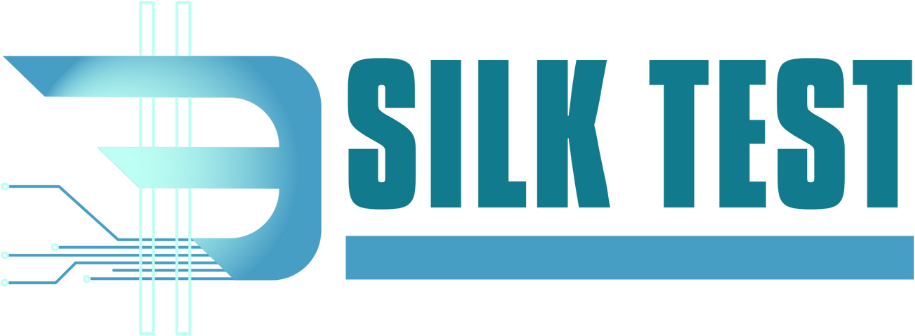In the online business environment, firms are no longer permitted to rely on cookie-cutter development solutions if they aspire to achieve lasting growth. The technology choice, and the expertise driving that choice, have a direct impact on scalability, adaptability, and long-term return on investment.
Python has grown from a simple language to one of the most potent, enterprise-level programming languages, now being ranked as the most used technology worldwide according to the TIOBE index. Its flexibility spans across sectors and project sizes, with firms being able to move directly from proof-of-concept to large-scale production without having to implement a complete architectural change. With digital transformation accelerating, niche Python skills are sought after in high numbers. Many firms are seeking collaborators who can fulfill technical skills and bring in strong business acumen. In this post, we’ll explore how to choose a Python company to ensure your next project delivers both technical excellence and tangible business value.
Why Python Is the Language of Choice for Business Applications
Before exploring Python’s broader business benefits, it’s essential to define why the language has become a core tool in scalable, high-performance application development.
Scalability and flexibility in various industries
Python has become a language that can be adapted to meet the needs of various industries, such as finance, healthcare, logistics, and hospitality. Its scalability lies in its ability to be interwoven with other technologies, like cloud-based microservices, AI-based analytics, and more, without harming performance and security. It allows companies to start small with minimal viable products and transition to enterprise-level systems effortlessly without disruptive rewrites.
Python’s architecture ensures that it’s more than capable of handling high-traffic customer environments. The language’s capacity to support both synchronous and asynchronous operations caters to applications that require high throughput and responsiveness.
Broad library and framework ecosystem
A critical aspect in which Python is superior in business use is its vast framework and library environment. Django and Flask optimize web development and make it more uniform; FastAPI offers lightning-fast API performance; Pandas, NumPy, and SciPy offer powerful data manipulation; and TensorFlow and PyTorch reign in AI and machine learning functionality. A broad choice of resources accelerates development without compromising quality. By leveraging pre-tested, community-supported components, Python developers can work more on fitting solutions to business needs instead of reimplementing core functionalities. For businesses, this implies shorter time to market, lower development spend, and solutions built on battle-hardened, proven technologies.
The Role of a Python Software Company in Business Success
Partnering with the right Python software company can transform technology from a supporting instrument into a fully-fledged, standalone strategic growth driver.
Providing tailored solutions for unique business needs
A solid Python team is not merely a code provider but a dedicated partner. Specialized companies design solutions to fit a customer’s operating models, market strategies, and growth plans. They come up with the right architecture, frameworks, and integrations to meet short-term requirements with room for expansion in the future.
 Tailored development ensures that systems are technically resilient as well as customized to specific workflows, user requirements, and compliance requirements. High adaptability is extremely crucial for companies with changing rules and regulations or varying customer requirements.
Tailored development ensures that systems are technically resilient as well as customized to specific workflows, user requirements, and compliance requirements. High adaptability is extremely crucial for companies with changing rules and regulations or varying customer requirements.
Combining technical expertise with business understanding
The leading Python agencies are aware that every technical decision affects business outcomes. They design systems to maximize performance, maintain security, and ensure usability, all while anticipating how each choice impacts customer satisfaction.
Case Studies: Python in Real-World Applications
Python’s versatility becomes most apparent when we examine how it powers solutions in different industries.
Dashboards
Python is well-suited for building interactive, data-intensive dashboards that deliver real-time insights. Using libraries like Plotly Dash or Bokeh, businesses can transform intricate datasets into actionable, intuitive visualizations. Operations teams, for instance, can monitor KPIs across departments, forecast demand, and react in real time to outliers – all from a single Python-powered interface.
Insurance
In insurance, Python-based robotic process automation (RPA) paired with policy management systems can significantly reduce the time required for processing claims, confirming policies, and submitting compliance reports. The outcome is minimized human error, faster customer service, and tremendous operational cost savings.
Hospitality
Hospitality businesses have leveraged Python to bring disparate systems, ranging from reservation engines to payment processors, into a unified system. These systems automate rate models, manage guest communications, and synchronize availability across distribution channels in real-time. The scalability of Python keeps these systems current with seasonal traffic levels and global events.
Choosing the Right Python Software Partner
Selecting the right partner ensures that your Python solution will scale, remain secure, and deliver consistent business value over time.
Qualities to look for in a development company
A credible Python partner demonstrates clear communication, smooth adaptability to change without disrupting timelines, and approaches projects with a ‘repair-it’ strategy. Indications of such qualities can be found through their case studies, delivery history, and willingness to discuss the trade-offs of their technical decisions.
 Their expertise should extend beyond Python to complementary domains, such as cloud infrastructure, DevOps, database optimization, and API integrations, enabling them to implement end-to-end integrated solutions rather than individual applications.
Their expertise should extend beyond Python to complementary domains, such as cloud infrastructure, DevOps, database optimization, and API integrations, enabling them to implement end-to-end integrated solutions rather than individual applications.
How to evaluate their portfolio and client feedback
So, how to hire a Python agency and verify its practical background? Dive into the potential team’s portfolio – it provides a sense of its scope of technical competency and industry versatility. Reviewing past projects helps determine whether they have addressed similar issues to yours – such as scaling a SaaS platform, implementing HIPAA compliance for healthcare software, or integrating multiple APIs into a single workflow.
Customer testimonials, online review scores, or direct citation feedback can clearly represent how the agency handles collaboration, punctuality, and unexpected issues. Receiving great feedback for responsiveness, adaptability, and the quality of solutions repeatedly is an excellent indication of a capable and reliable partner.
Conclusion
Python is the technology of choice for developing scalable, adaptive, and future-resistant business applications. In the hands of the right development partner, it delivers solutions more than just functional, delivering operational effectiveness, customer satisfaction, and sustainable growth.






